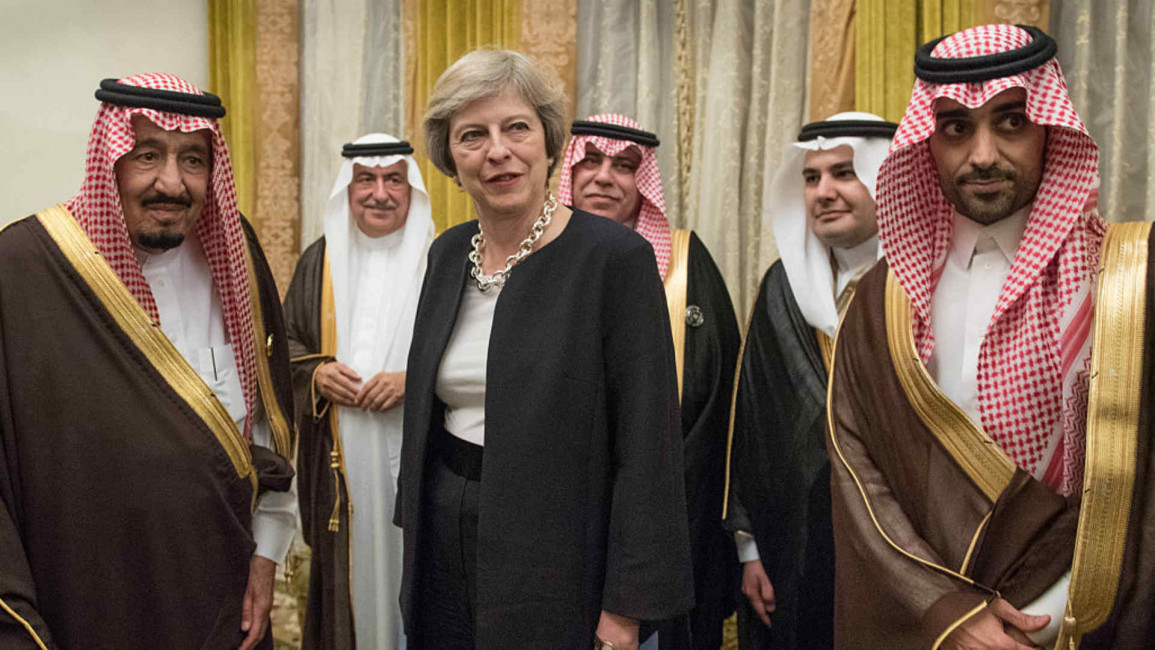
Who is promoting extremism in the UK?
Among the accusations these countries level at Qatar, the most oft-repeated is its alleged support for and funding of terrorist and extremist groups in the region and internationally.
This month, however, saw the release of a report from a UK research centre focused on radicalisation and terrorism that levels more blame at Saudi Arabia than Qatar for promoting extremist ideologies in Britain in recent years.
The British government is so concerned over funding of extremist groups masquerading as charitable organisations that it ordered the UK Charity Commission last week to declare any overseas funding they receive.
The report from the Henry Jackson Society's Centre for the Response to Radicalisation and Terrorism found that Saudi Arabia had spent £67 billion promoting its ultraconservative Saudi Wahhabi ideology globally over the past 30 years - both by funding religious centres, producing extremist literature and paying for individuals to study in Saudi Arabia and return to spread its version of the faith.
And while Saudi Arabia claims to be in the vanguard of the struggle against terrorism - and since 9/11 has set up programmes for deradicalising and rehabilitating its own domestic militants - the report found that Riyadh doubled the amount it spent on promoting Wahhabism abroad between 2007 and 2015.
 |
Riyadh doubled the amount it spent on promoting Wahhabism abroad between 2007 and 2015 |  |
The report detects a link between Islamist organisations receiving foreign funding and jihadist groups promoting violence. The Saudi-funded Green Lane Mosque in Birmingham was found to be regularly providing a platform for preachers glorifying jihad and preaching hatred of non-Muslims.
Twitter Post
|
Among those arrested in a counterterrorism raid in London in April this year were Twitter followers of Mohammed al-Arefe, a member of the Muslim World League (MWL) – one of the Saudi bodies set up to promote Wahhabism abroad.
| Read more: Saudi Arabia asks US judge to dismiss 9/11 lawsuits | |
The MWL ironically provided a conference platform in 2008 for Muslim Brotherhood figurehead Yusuf al-Qaradawi - one of the main figures Saudi Arabia now condemns Qatar for supporting, and sees as evidence of Doha's promotion of terrorism and extremism.
While the Henry Jackson Society finds that Saudi Arabia is the prime sponsor of Islamist radicalism, the Kingdom is not alone. The finger is also pointed at Iran, Qatar and Kuwait for supporting institutions in Britain promoting extremism, hatred and violence. And it blames governments themselves as well as government-linked foundations based in the Gulf.
The report fails to definitively link such foreign funding with specific cases of violence but the concern of the British government over promotion of extremist Islamist ideology is clear.
| Read more: Foreign funded extremism in the West: Politics vs evidence | |
Opposition parties in Britain have for months been demanding that a report commissioned by former PM David Cameron into foreign funding of extremism and radicalisation in the UK be made public.
Last month, Home Secretary Amber Rudd finally ruled that it could not be published in full, because it contained sensitive and personal information. But a summary of the report makes clear that although money for Islamist groups came principally from donors within the UK, foreign sources pay for extremist literature and preachers at British Islamic institutions and that "some of these individuals have since become of extremist concern".
 |
The Charities Commission in the UK has reportedly agreed to ask charities to declare the source and amount of any foreign income they receive |  |
Such is the government's concern over such foreign funding that it is now calling for such charities to declare any funding they receive from overseas. The Charities Commission in the UK has reportedly agreed to ask charities to declare the source and amount of any foreign income they receive. Such increased transparency in funding of institutions is a recommendation in the Henry Jackson Society report to try to prevent radicalisation of young Britons.
This is not the first time accusations have been levelled at Saudi Arabia and other Gulf states of sponsoring or at least turning a blind eye to promoting of extremism overseas. And such charges are regularly brushed aside. The Saudi embassy dismisses the Henry Jackson Society report as "categorically false".
But in the light of the current accusation by Saudi Arabia, the UAE, Bahrain and Egypt that Qatar is actively promoting extremism and terrorism, these developments in the UK suggest it is far from alone in being under suspicion.
David Powell worked for 20 years as journalist in pan-Arab television news, including BBC Arabic and MBC. He is now an analyst of Middle East affairs specialising in media and Islamist movements.
Opinions expressed in this article remain those of the author and do not necessarily represent those of The New Arab, its editorial board or staff.




